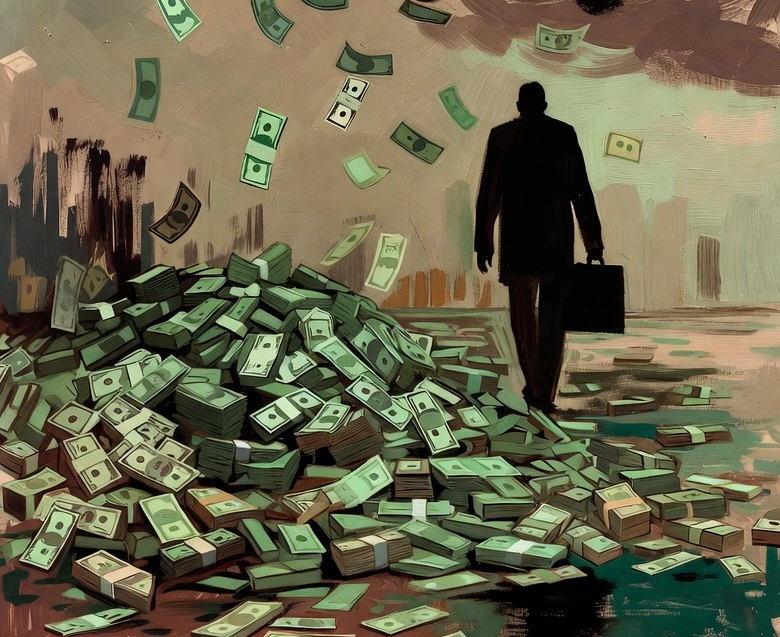
The Bitcoin Bubble: El Salvador’s Cautionary Tale
As financial regulators across the developed world cautiously navigate the murky waters of cryptocurrency regulation, one small nation decided to cannonball into the deep end. The results have been precisely what any rational economist would predict: a spectacular belly flop.
El Salvador, a country better known for its stunning volcanic landscapes and rich indigenous heritage than its financial innovation, became the world’s first crypto laboratory in 2021. At the behest of Nayib Bukele – a man who unironically crowned himself “the world’s coolest dictator” – the nation embraced Bitcoin as legal tender with the fervent optimism of a college freshman discovering libertarianism.
The government’s grand vision was intoxicatingly simple: transform a struggling economy plagued by poverty and crime into a gleaming crypto utopia. What could possibly go wrong when a nation with limited digital infrastructure pivots its economic future toward a notoriously volatile digital asset?
The Grand Experiment
The timeline of El Salvador’s Bitcoin adventure reads like a Silicon Valley cautionary tale. In June 2021, lawmakers approved Bitcoin as legal tender, presumably after an extensive five-minute Google search on “what is blockchain.” By September, the government had earmarked $200 million – a staggering 2.7% of its annual budget – to finance this digital pipe dream.
Citizens were promised $30 worth of Bitcoin each, deposited into a hastily constructed digital infrastructure managed by US crypto asset trust BitGo. Bitcoin ATMs materialized on street corners faster than you could say “speculative bubble,” while Bukele took to Twitter with the enthusiasm of a teenage influencer promoting energy drinks.
The Reality Check
When reality inevitably crashed the party, it arrived with all the subtlety of a sledgehammer. Bitcoin’s value promptly plummeted 20%, government servers buckled under the pressure of new users, and the official crypto app failed to materialize on major platforms. Citizens expressed their enthusiasm for this brave new financial world by surrounding the Supreme Court in protest, where they were warmly greeted by riot police.
Four years into this grand experiment, the results speak volumes. Less than 2% of El Salvadorians have adopted this “revolutionary” financial technology. Meanwhile, inflation has surged, national debt has ballooned, and poverty rates have climbed steadily.
A viral video from 2022 perfectly encapsulates the practical challenges of this crypto paradise: a bewildered tourist waving his phone frantically at a beer kiosk, unable to complete a simple transaction. “I don’t have my invoice ready,” he mutters, a fitting slogan for a nation that wasn’t ready for the crypto revolution either.
Doubling Down on Disaster
In the face of overwhelming evidence that his experiment has failed, Bukele has done what any self-respecting crypto enthusiast would do: doubled down. Plans for “Bitcoin City,” an ostentatious development designed to attract industry moguls and crypto disciples, have accelerated despite the environmental cost – three square kilometers of mangrove forest destroyed and 225 households displaced.
In a particularly inspired move, El Salvador recently backed out of a $3.5 billion IMF loan that would have restricted government Bitcoin transactions. The very next day, the country’s “Bitcoin Office” proudly announced the purchase of exactly one more Bitcoin for the national reserve – a gesture so symbolically empty it borders on performance art.
Lessons Not Learned
El Salvador’s cautionary tale reveals the fundamental contradiction at the heart of cryptocurrency evangelism. For all the lofty talk of financial inclusion and economic liberation, the reality is far more prosaic: a volatile asset class that primarily benefits early adopters while exposing vulnerable populations to unprecedented risk.
The cryptocurrency dream – a decentralized financial system free from government oversight – ironically required a near-authoritarian implementation in El Salvador. Citizens didn’t choose Bitcoin; it was imposed upon them by a government willing to spend millions in public funds on a financial experiment while basic needs went unmet.
As wealthy nations debate cryptocurrency regulation, they would do well to study El Salvador’s misadventure. The promise of cryptocurrency as an economic panacea has been tested in real-time, and the results are in: increased poverty, environmental destruction, and a population largely disinterested in the “financial revolution” being forced upon them.
Perhaps the most damning indictment of El Salvador’s Bitcoin experiment isn’t the economic statistics or the environmental impact, but the simple fact that its citizens – the supposed beneficiaries of this brave new financial world – have overwhelmingly rejected it. When less than 2% of your population adopts a technology you’ve made legally mandatory, it might be time to admit that the coolest dictator’s hottest idea was actually ice cold.
As El Salvador continues its quixotic crypto crusade, the rest of the world would be wise to recognize that when someone says they’re “all in” on cryptocurrency, they’re often describing a gamble, not a strategy. And as any seasoned gambler knows, the house always wins – just not the houses in El Salvador.

Founder and Managing Partner of Skarbiec Law Firm, recognized by Dziennik Gazeta Prawna as one of the best tax advisory firms in Poland (2023, 2024). Legal advisor with 19 years of experience, serving Forbes-listed entrepreneurs and innovative start-ups. One of the most frequently quoted experts on commercial and tax law in the Polish media, regularly publishing in Rzeczpospolita, Gazeta Wyborcza, and Dziennik Gazeta Prawna. Author of the publication “AI Decoding Satoshi Nakamoto. Artificial Intelligence on the Trail of Bitcoin’s Creator” and co-author of the award-winning book “Bezpieczeństwo współczesnej firmy” (Security of a Modern Company). LinkedIn profile: 18 500 followers, 4 million views per year. Awards: 4-time winner of the European Medal, Golden Statuette of the Polish Business Leader, title of “International Tax Planning Law Firm of the Year in Poland.” He specializes in strategic legal consulting, tax planning, and crisis management for business.



